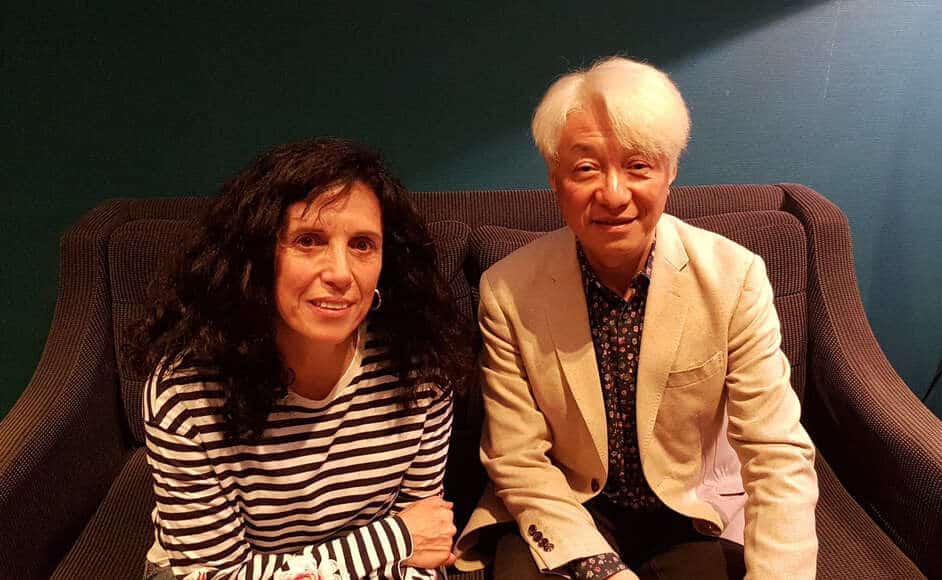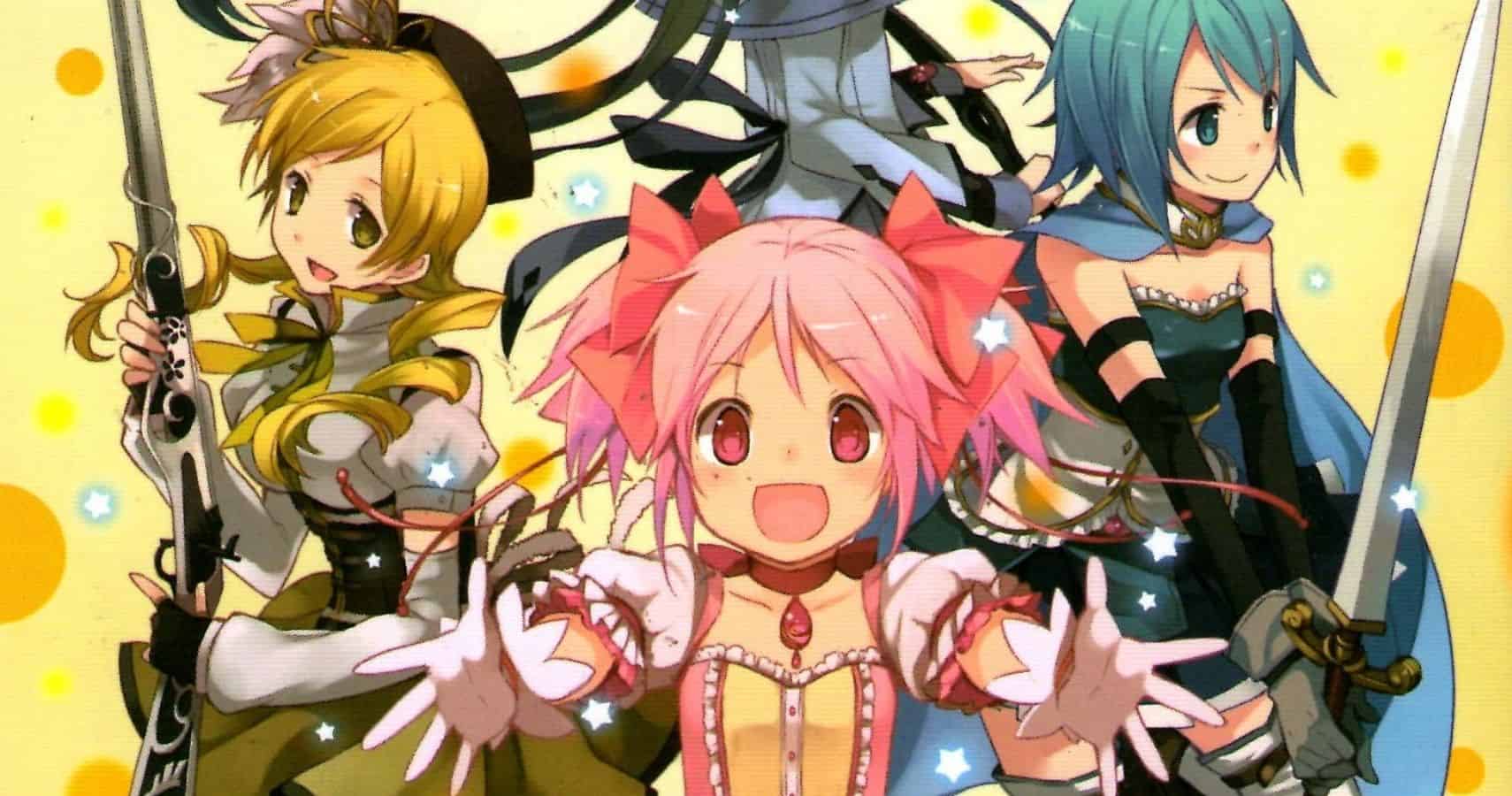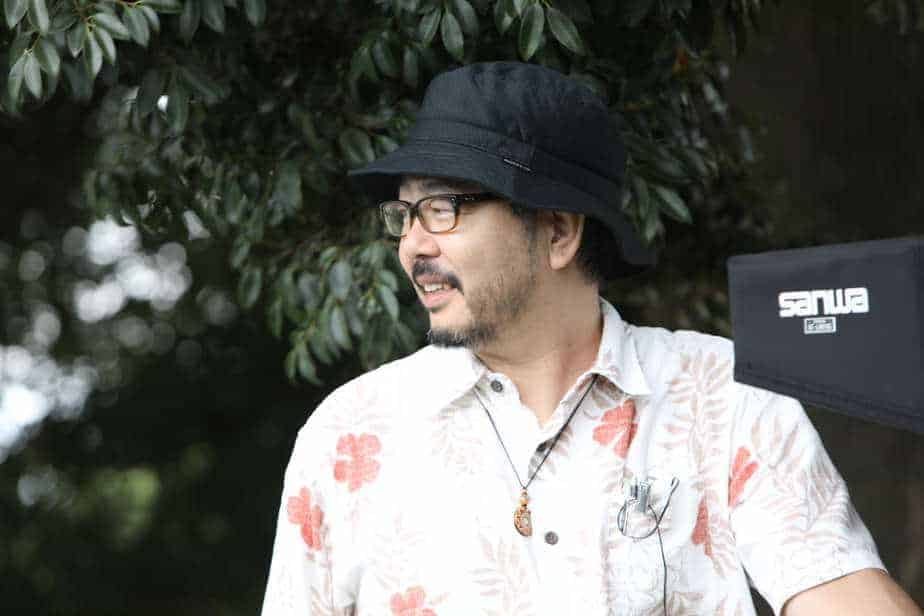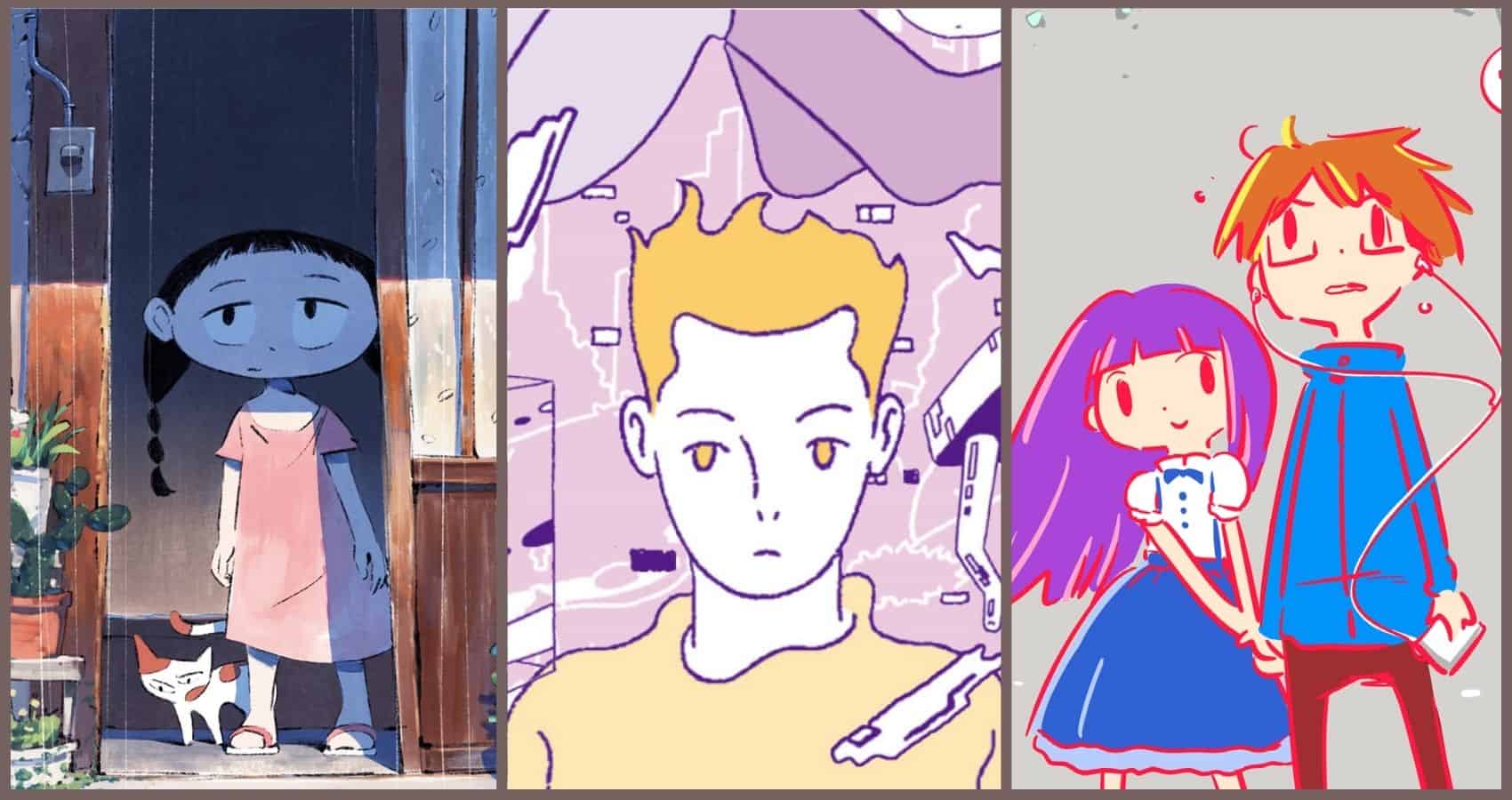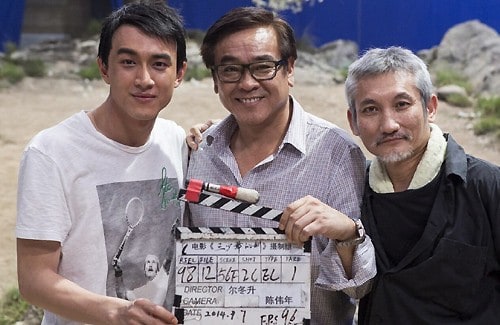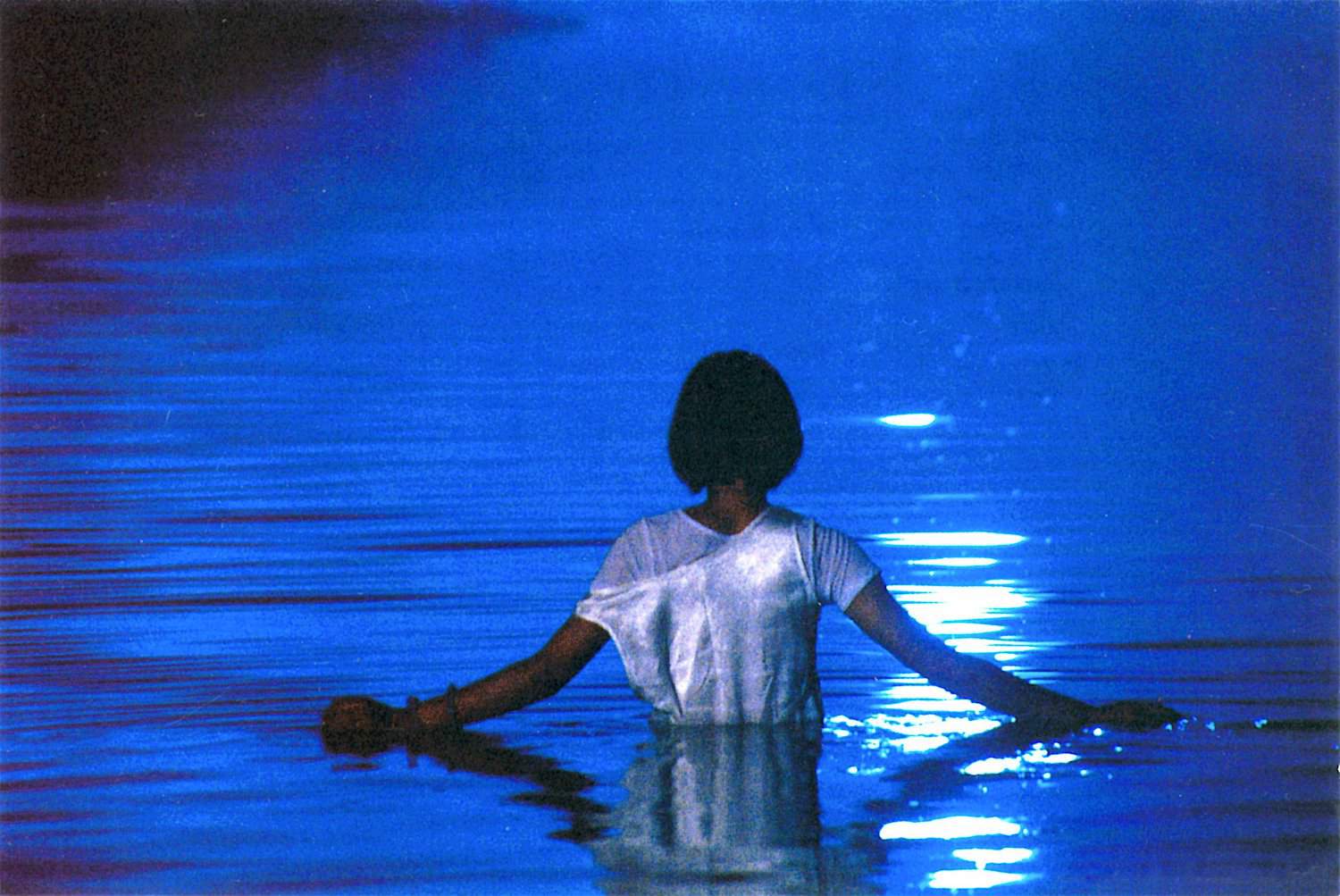Makoto Tezuka, also known as Macoto Tezka, was born in 1961 in Tokyo and is a Japanese film and anime director, with his own company, Neontetra. Son of the Manga artist Osamu Tezuka, he co-owns Tezuka Productions and helped in releasing the works of his late father. Some of his works include “Hakuchi: The Innocent” (1999), “Black Kiss” (2004), the anime “Black Jack” (2004).
On the occasion of his 1985's cult debut feature “The Legend of the Stardust Brothers“ (“Hoshikuzu Kyodai no Densetsu”) being released by Third Window Films we speak with him about the making of that film, the challenges and the outcomes.

The making of “The Legend of the Stardust Brothers” has an upside-down story-line, as you started from the soundtrack. Can you tell us the story of how you found Haruo Chikada (the music's author) and how you two started to collaborate?
Haruo Chikada is a musician who made that album first. I met him on a TV program and he told me that he really liked that “Phantom of the Paradise” by Brian De Palma and I was a really big fan of “Phantom of the Paradise”, so we started talking about film-making and Haruo Chikada told me that he really would have liked to make a film, to make his music into a film and he had already made a soundtrack, “Startdust Brother”. So he always really wanted to make that into film; then he asked me to do the filming and I said yes. You know the film called “Tommy” by The Who? That's how it happened, kind of same format. The Who made the soundtrack first, not the film Tommy. They subsequently made the film from the album, so it's kind of the same format. We wanted to use that way of working.
What can you tell me about the casting process? The cast of the film is very eclectic. Was it challenging for you to work with that mix of people?
There were so many people who actually were in the film “Tommy” as well. They were musicians, and around that time I was hanging around those people who are in the film. They were all my friends, I really wanted to cast them in my film. Some people didn't actually fit into the role and we had to employ also some professionals to act, but apart from that, they were almost all my friends. Luckily Chicada and myself had a broad group of people we knew, some of them were musicians and outside the film world, we had so many other kinds of friends! And we were really lucky that we could ask all those people to be in the film. We didn't really want to make the movie to fit into the film industry around that time, we wanted it to be a little bit more subversive, we wanted to break all the rules to make in a film. That's why “The Legend of the Stardust Brothers” is quite like it is.
How did you get to cast Mr Ozaky, a well-established singer?
I actually offered him the part directly, I asked him directly, like: Can you read the script, and if you like it, can you be in my film? And he really liked it actually. So he just read the film and said yeah! That was really lucky. Actually before I offered the role to him, I thought he was an actor because I had seen one film he was in it and I thought he was probably a singer as well as actor. But it turned out that he was in the film only because he was a friend of the director and he actually didn't have any acting background. But I really wanted him to be in it, I really liked his personality as well, so I had to have him anyway.

The film is pretty eclectic. It has got some bits of animation and some bits are in proper horror mode. Do you like the horror genre?
I've been watching so many films and I really like many genres of films. There are so many elements that I wanted to put into the film. So I took bits and pieces from all other genres and put them into mine like re-mixing everything into one film. Also I do like the style of Monty Python. When you're watching the Monty Python as it is obviously a comedy, it changes from one to another sketch very, very quickly. And they sometimes put some animations in it as well. I really liked those kinds of compositions and therefore I utilized that kind of format too.
It looks as if you had lots of fun making it.
Well, obviously there are two sides in the film-making. Surely a fun parts but then there are other elements, it was also really hard. Like I said, I really wanted to put loads of genres into one film, so that means the crew had to work harder, maybe three times more than just making a normal film. It was probably really hard for them to prepare, lots of sleepless nights to prep the film. So you know, it wasn't really easy to make it but because we were young we could do it.
And how did you come out with the idea of having the politician looking like Hitler? It comes across like a very strong statement.
Do you know Toshiro Mifune? He is a very famous actor, we offered him that role because I really wanted to “wow” the audience with an unexpected actor, but he was a bit too expensive for us! We asked Akira Kurosawa as well. But he was busy shooting Ran.
Did you know Kurosawa personally?
No, I didn't know him but I asked him anyway and offered him the role! But then we were becoming close to shooting the politician scene and couldn't find anyone to create that surprise in the audience. So I thought to use the appearance of the politicians to surprise, and that is why we decided to do that.

The story is a very male story and the female character of Marimo is not allowed to sing by the big Producer but she is relegated to the role of the groupie head. Was it something functional to the story? I thought female idols were very popular at that time too.
To begin with, when I started to write the script she was only the female character needed in between the two men. So that was initially a tiny, tiny role, but then it developed because like you said, there were the idols and that the side of the music industry and then I thought, you know, if we use a Japanese idol figure, then we might as well use it a little bit more to give a statement or to create a story about the Japanese idol or Japanese idol teams. So again, it became bigger and it become Marimo. There is another element that's nice. Do you know, Johnny? This is like a really famous company that produces so many good bands and groups, you probably know the SMAP. Johnny (Kitagawa) is the guy who is in charge and owns the company; he only employs male staff and musicians because he's gay. So it would have been really hard for Marimo or a female idol to become the Idol star. At that time, Johnny was very big in Japan, so it was like telling people that this is what happened in Japan. Maybe it's not easy for the foreigners to understand, but Japanese people would understand the hint.
The film is a humorous story of the quick rise and fall of the pop idols. Do you think the situation of the pop idols now and then has changed and in which way?
I think the most important difference is that there aren't any more one-hit stars. In the eighties, or maybe even seventies, the audience wanted something new all the time, so if somebody was succeeding with one song, they didn't really want this person to just continuously make the same great music. The path was more like to get one great piece that the public would fall in love with, but then they would forget it very easily and the industry would look for another musician to go up. And so it was just going up and down, up and down. Consequently, there were so many one-wonder people. But these days, once a music or a group, or a musician becomes famous, they want this person or group to continuously produce hits, so the producers are not looking for other new stars to produce, but they try to keep this person on the top, all time. So that secures he would be doing more than just becoming the “one-hit” sensation and then go down. And the same goes for the film industry. The film industry right now is like the music industry, they do the same thing, if you have got the format that can make a hit-film, then all the producers and the film-makers want to keep that format because they know it's the safe, winning one. In the 80s, it was different because the audiences demanded new things all the time. So, back then we could make experimental films, these days we cannot make expensive experimental films because there are other winning formats already there and they want to play safe, really.

You were very young when you made “Stardust Brothers”, what did the experience teach you?
Because that was my first commercial film I also worked with my first commercial crew and I learned so many things from them, but not only the good things, bad things as well. For example, noticing that I really detested or I didn't really like what a person or the crew was doing and therefore telling myself not to do it. So, you know, all good things and bad things at the same time from all the crew, really. And also, my perception was that once I had made a commercial film, then I was probably not going to stop working and getting loads and loads of work, but that didn't happen. I actually didn't get any offers. So that was a disappointing lesson I learned. Say, for instance, Tim Burton; he made “Pee-wee's Big Adventure” that was a very, very quick feature film. That was a big hit and then he got new offers and he could make “Beetlejuice”, which was a really good film and a commercial film. I was expecting that the same thing would happen to me, but Japanese industry around that time wasn't really interested in newcomers. They always went for the established filmmakers. I was very sad about that. Yeah.
What prompt you to the sequel / remake in 2016?
It was the 30th anniversary and we got together with the older crew and cast, we had a little party and then some of them were talking about it and saying: “let's make a new film, a new version of the film”. I wasn't very into that idea, I was a bit reluctant to make another film, but the other people were really pushing me to make the new version of it. So that's why I made it. Actually, I made this new version of the film for the younger audiences. My idea was that the younger audience could watch it and understand it and that they would love it. But it wasn't like that, the old audience loved the film, the original audience that had watched my original one. But probably for a younger generation, it is a little bit too much, so they didn't really understand the contents of it, they didn't have a clue of all I was doing. That links to the thing I said before that young audience nowadays are not looking for new types of film, a brand new film. They just want to have the same format film.
Maybe that is why lots of remakes are done nowadays.
Yes, even a remake film is the same. If you know it is a winning format, then it's going to stay. Obviously the audience would love the film because there's a well-tested, winning format there.
As a last thing I would like to ask you about your next project Barbara from your father's (Osamu Tezuka) manga with the same title, a book I really loved. Why that particular story?
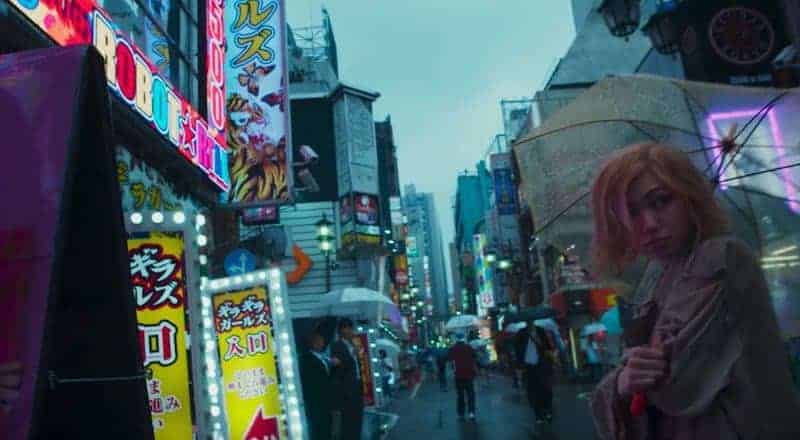
There were a few more other projects that I really wanted to do out of my father's mangas, but one producer was interested in making “Barbara”, so that's why we decided to make the film. But that was years back and we couldn't find a suitable cast or anything, so we took Barbara aside for a bit while we were making the new version of “Stardust Brothers”. After it, I went back to “Barbara” and then it all just happened really fast. We got all the elements together, in terms of the stuff, crew and everything so I could make “Barbara” . Another element is that my father's whole body of work is very well known and commercial, except for “Barbara”. “Barbara” has got a little bit more cultic feeling to it and it's slightly obscure, and I really like the tone of it, that's why I chose it to be made into a live action film.
I am really looking forward to it! Thank you.


